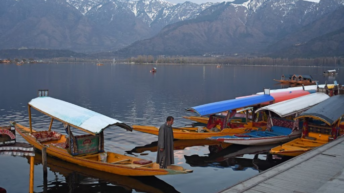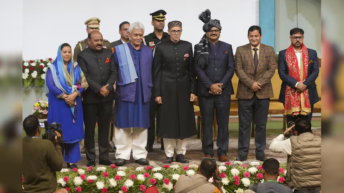|
Listen to article
Getting your Trinity Audio player ready...
|

Nearly a week after Canadian Prime Minister Justin Trudeau made his oxymoronic “credible allegations” in Ottawa’s Parliament against the Indian government regarding the murder of Khalistani terrorist Hardeep Singh Nijjar, the resultant diplomatic row shows no sign of de-escalation. Over the course of last week, Trudeau and his Liberal Party colleagues have created an unprecedented scenario for their Five Eyes allies who have been forced to weigh in with statements of concern. On the other hand, India has been very steady in its response by first rejecting the allegations and expelling a senior diplomat, and then further issuing an advisory on the security environment in Canada and even chiding Canada’s premier political figures for misconstruing acts of terrorism and separatism as free speech and respect for the rule of law. This incident has managed to shift the attention of foreign policy watchers in India from the success of the G-20 summit in New Delhi to the increasingly confrontational relations with Ottawa. The latter has chosen domestic political expediency over addressing a decades-long problem of terrorism, separatism, and hate crimes directed against a sovereign nation. Irrespective of the political and foreign policy goals that Trudeau may have set for himself, the Canadian Prime Minister’s deliberate attempts to sensationalise diplomacy and jeopardise what otherwise appears to be a prospering relationship needs deeper scrutiny, especially in the aftermath of his own public relations debacle during the G-20 Summit in Delhi.
Behind the Khalistani veil, does this incident create a modus operandi for a populist politician like Trudeau to use bilateral issues for appeasing his domestic political gallery? Does vote bank politics trump concerns about building resilient partnerships and trade? More importantly, does the search for relevance of one egotistic individual in a polity allow him to undermine the national interests and concerns of friendly countries? The diplomatic crisis caused by an impulsive Western politician also raises certain concerns regarding the prevailing foreign policy frameworks which many in India have assumed to be deeply meaningful. A noticeable surge in the usage of ‘Indo-Pacific’ across social and news media after Trudeau’s fiasco hints at these underlying policy concerns. Is the ‘Indo-Pacific’ the only framework available to the Western powers for strategising and evaluating their relations with India? As India has sought to assume the leadership of the ‘Global South’ in the last few years, it will also be imperative to periodically examine the weight and bargaining power of such groupings while dealing with the ‘Global North’, especially in the context of a diplomatic crisis.
Trudeau and Canada
It is important to understand the treatment of Khalistani terrorism within the larger political framework that Canada provides. Canada’s historical domestic and foreign policy blunders combined with Trudeau’s egocentric handling of diplomacy have now interlinked the Khalistani issue with domestic political compulsions and conveniences. India has long and explicitly voiced its concerns about the Khalistani separatist movement to its Western allies in the UK, USA, Australia and Canada. India’s position regarding the separatist elements and their open advocacy of violence against Indian diplomats, politicians, and the expatriate Indian community has been very consistent in the last four decades, irrespective of the political party in power in New Delhi. While other Western countries have chosen to engage with New Delhi on this issue, Canada remains consistently oblivious to Khalistan’s open calls for secession and even distorted the facts on multiple occasions to cater to certain domestic political preferences. India has long suffered from the extremist violence manifested in Air India’s Kanishka bombing, in the loss of lives of Police and Army personnel, in Pakistan-supported terrorism in Punjab, and in political assassinations, including that of Prime Minister Indira Gandhi. New Delhi has constantly sought the cooperation of Canadian authorities for countering Khalistani separatism and radicalism which now feed on peripheral networks involved in drug trafficking, terrorism and hate crimes.
Canada’s passivity, combined with bureaucratic inaction regarding India’s concerns has long constrained the relations between New Delhi and Ottawa. Despite some shared political values, Commonwealth membership, strong people-to-people contacts, and expanding commercial relations, it is worth noting that in the last four decades, India’s Prime Ministers have visited Ottawa only twice. Former Prime Minister Manmohan Singh visited Canada once on the occasion of a G-20 Summit held in Toronto. In fact, it was Prime Minister Modi who sought to reset the ties by paying a bilateral visit to Canada in 2015. For the first time since 1973, for the sake of upholding the interests of the Indian diaspora in Canada and developing commercial and strategic partnerships, Prime Minister Modi took a giant leap of faith with the North American country. The visit underlined the vast scope of cooperation in multiple areas. However, rather than reciprocating, Canada has offered minimal governmental engagement and even failed to acknowledge the concerns raised by India.
On a personal front, Trudeau’s failures on recent domestic issues such as the national truckers strike, post-pandemic inflation worries, and the handling of Chinese interference, accompanied by a consistent fall in his approval ratings in recent years, has made him over-reliant on his coalition partners. Trudeau, while paying lip service to woke liberal political discourse, has tried to shape Canada as a new-age Scandinavia for those who claim to be persecuted. His government has notoriously failed to even understand, let alone act on the gravity of the separatist concerns and associated criminal issues that India has consistently raised in the last several years. Canada’s amateurish interventions in extradition-related matters of Sri Lanka and Bangladesh have only invited condemnations from these countries. As evident from his most recent reception of Ukrainian Prime Minister Zelensky, during which the Canadian Parliament paid homage to a Nazi Ukrainian veteran, Trudeau poses as a poster child of the liberal discourse, though he is not very adept at it given his poor management of domestic and foreign affairs. He offered his unsolicited opinion during the Farm Laws protests in India and thereby did significant damage to the relations between the two governments. Trudeau remains a product of dynastic politics and has even appeared to groom his son as a potential successor during foreign visits, including the G-20 summit in India. A new language of engagement, instead of moralistic hectoring, would suit Trudeau well in dealing with allies and friendly countries.
Diplomacy of a Rising Power
There are some significant policy pointers for India too in this episode. The rise of any power, historically, carries undertones and, in some cases, overtones of disruption of the contemporary world order. In the aftermath of the Russia-Ukraine conflict, the question concerning the extent of the willingness of the Western block to accommodate India’s interest and respect its strategic autonomy will need to be revisited. India, in order to guard and pursue its national interest, has accepted to play a role in the Indo-Pacific theatre which remains a Western coinage. India has brought credibility to multilateral and bilateral agreements in this region by embracing its opportunities and challenges. Prime Minister Modi has often characterised India as a rising power that stands for an interdependent and cohesive world order. Such a global system of interdependencies will ensure the growth of India’s hard and soft power. Policy sensitivity towards the ‘Global South’ emerges from such values which steer the international community towards consensus, and collective growth.
In an election year, India also needs to provide graded weightage to domestic issues harbouring a disruptive potential in the context of its ever-evolving bilateral and multilateral relations. As a responsible but assertive and growing power, India cannot ignore the growth of damaging narratives nor venture onto the terrain of zero-sum games. As the Farm Laws protests demonstrated a few years ago, constant attempts are being made to link the Khalistan secessionist ideology to Sikh religious identity. Prime Minister Modi’s decision to repeal the Farm Laws precisely addressed this linkage and nipped the politicisation of Sikh identity in the bud. Our national insecurities require such structured responses and counter-balancing. In this context, India’s diplomatic response to Canada also must be crafted so as to secure the national interest without damaging long-term prospects in the bilateral relation.
Conclusion
It is evident to the foreign policy establishment in India that Canada, apart from the thorny Khalistan issue, remains a friendly country where the expatriate student community, trade, technology, and defence cooperation are important factors in the bilateral equation. Repairing the damage done by Trudeau’s actions will take some time and effort from both sides. Trudeau must be taken to task for his portrayal of Khalistani extremism as an issue of political oppression and electoral expediency. India should call out the hypocrisy of the Canadian establishment without losing sight of the significance of the North American region as a sphere of growing Indian strategic and economic influence. In short, Trudeau, both as a person and as a symptom, should not dictate the course of our engagements with Canada and, by extension, with North America.






Add comment